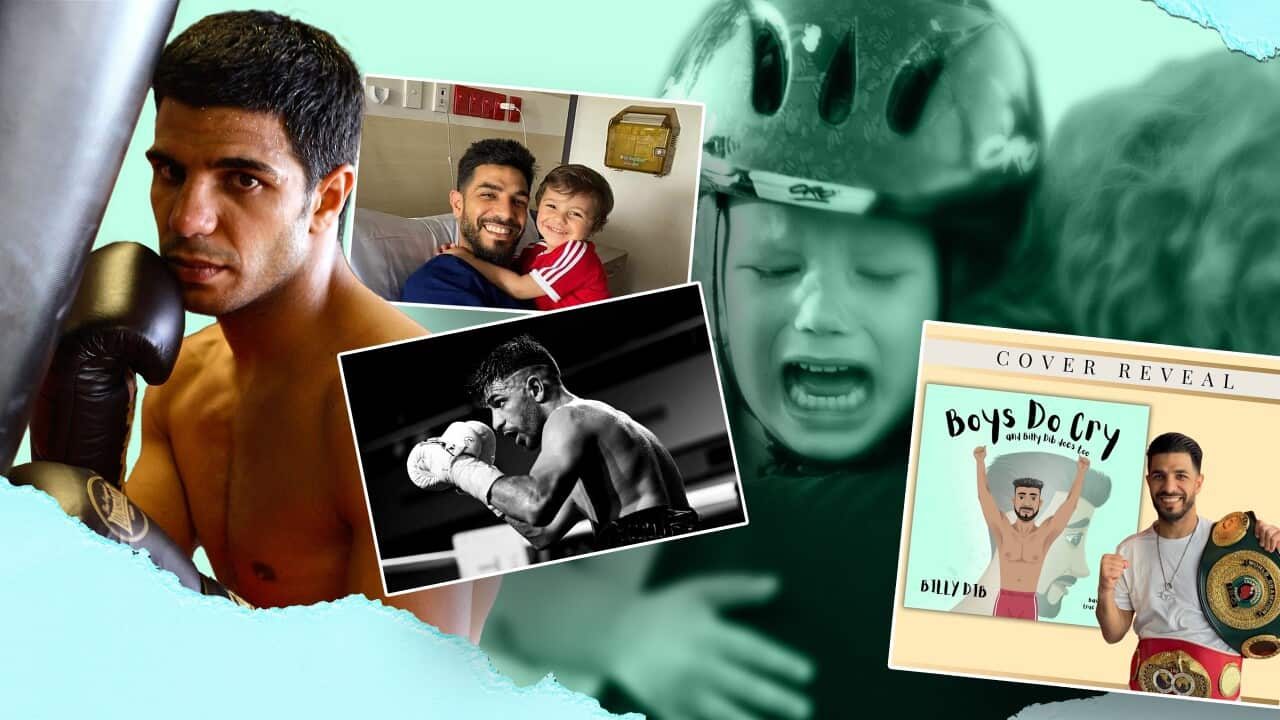Thousands of Australians remain stuck overseas as a cap on international arrivals places tight limits on the number of people allowed to return.
Australia’s National Cabinet in July
As a result, the priority status held by those who are Australian citizens, permanent residents, or holders of border entrance exemptions, has not necessarily meant easy entry.
Dr Remon Farid is a general practitioner at a clinic in the NSW suburb of Penrith, more than 50km from the Sydney CBD.
He has been trying to secure the return of his family to Australia since the country's international borders closed in early 2020.
He and his wife moved to Australia from Egypt in 2019 and they welcomed their daughter into the world in January. It was when his wife returned to Egypt to preside over their daughter’s Christening that the family was separated.
It was when his wife returned to Egypt to preside over their daughter’s Christening that the family was separated.

Doctor Remon Farid talking to his daughter through Skype. Source: Supplied
“My wife took our daughter to Christen her in the Orthodox church in Egypt in March, and I was supposed to follow them in the same month, but due to the pandemic, the border closed, and we couldn’t travel from Egypt or Australia.”
He said the period of separation has taken a profound toll on him emotionally.
“I have missed all the milestones and I can’t see my daughter develop before my eyes, and this really affected my wife.”
Dr Farid initially tried to obtain an exemption once the border closed, but his request was rejected.
“They told me that my request was not on compassionate grounds to bring them back, and honestly I didn’t know what grounds could have been more compassionate than reuniting a family and bring back a baby who was born in Australia to her home.”
In July, he called the office of the Minister for Home Affairs Peter Dutton to explain that he is a frontline worker, and why he needed an exemption.
“I submitted the same papers again, they were really helpful."
To his delight and just days later, he received the answer he had been waiting for when he was granted the exemption.
But his joy was short-lived after he tried to secure flights for his wife and child to return. He says he's now in a battle to secure their return.
“I felt for a moment there is an appreciation for our role as doctors on the frontlines but unfortunately this feeling was short-lived.
“The problem now is the arrangements of the government with the airline companies, because after what happened with Victoria, all international flights are directed to Sydney and that put a lot of pressure on the city’s hotel quarantine system.”
Currently, only 4,000 people are allowed into Australia each week, despite 23,000 people registered to return, according to government estimates.
It was during this difficult process that he realised that having an exemption did not guarantee his family's return.
“They told me in Emirates that every plane that leaves Dubai to Australia doesn’t carry more than 50 passengers.
“My wife doesn’t have permanent residency or citizenship, therefore she is not a priority even if she has an exemption.”
Dr Farid said he has tried to book tickets four times only to be informed that his family has been placed on a waiting list, before having their tickets cancelled.
“Since July, my wife’s luggage has been packed and ready in her room, but she can’t fly.” He said the uncertainty and heartache of his personal situation factors into his day-to-day life, but he doesn’t let it affect the vital role he plays as a GP.
He said the uncertainty and heartache of his personal situation factors into his day-to-day life, but he doesn’t let it affect the vital role he plays as a GP.

Doctor Remon Farid talking to his family over Skype. Source: Supplied
“You are a doctor who provides care daily to patients and you hear their complaints and you need to keep up your professionalism in dealing with patients to assess their cases correctly and reach the right diagnosis and give them the right treatment, without letting your personal life interfere in your judgment.
“The pressure I feel is big and the situation I am going through is very hard.”
In his job as a GP, Dr Farid tends to patients with all sorts of ailments, and he said he's taking extra care when patients present with respiratory symptoms.
“This period is hard for anyone working in health care because any patient you see with respiratory symptoms could be a coronavirus case.
“I am lucky enough that I didn’t catch the infection, the area where my work is, doesn’t have many cases, and everyone we suspected could have coronavirus, their results come back negative.”
People in Australia must stay at least 1.5 metres away from others. Check your state’s restrictions on gathering limits.
If you are experiencing cold or flu symptoms, stay home and arrange a test by calling your doctor or contact the Coronavirus Health Information Hotline on 1800 020 080. News and information is available in 63 languages at .






